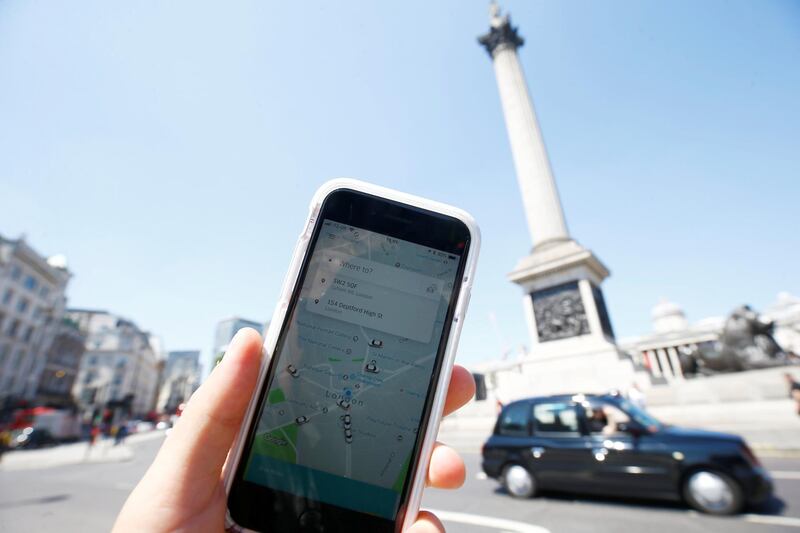The app-based taxi service Uber told a court on Monday it had made “wholesale changes” to the service as it sought to win back its licence after regulators found it was not fit and proper to operate in London.
The company admitted a series of failures after Transport for London (TfL) last year criticised its training and crime reporting, the latest of a series of legal problems to hit the technology start-up worldwide.
High fares for traditional black cabs in London had swiftly turned London into Uber’s most lucrative market in Europe, but its progress stalled last year after an application for a five-year operating licence was turned down.
Uber appealed against the September 2017 decision on Wednesday and its lawyer Thomas de la Mare said that it changed from a “business that has grown very fast, into a business that is growing up” after a boardroom shake-up following a series of scandals.
_______________
Read more:
Erdogan says Uber 'finished' in Turkey
Uber is sued over payments by British mobile advertising agency
_______________
It said it had improved the way it reported allegations to the police after 30 of its drivers were accused of rape in 2016. Chief Magistrate Emma Arbuthnot told the hearing in central London that the case would decide on “public safety” grounds if the firm was “fit and proper” to operate in London. She suggested the company might be considered for a short licence under strict conditions.
The firm was at the heart of a hacking scandal in 2017, where it was revealed that Uber concealed a hack affecting over 50 million users and drivers worldwide. The hack affected two million users in London, yet the figure given by Uber to TfL was far smaller.
Tom Elvidge, Uber’s General Manager in London, told the hearing that the firm continued to receive 220 reports per week of data breaches, yet is “using the latest technology and working closely with the police”, to tackle the problem.
The court heard that the company had saved money by sending do-it-yourself eyesight testing procedures to prospective drivers through the post, then carrying out medical checks via Skype. The system was “open to abuse… by applicants looking to cheat”, said Martin Chamberlain, the lawyer for TfL.
The company’s woes in London follows other controversies, including in Abu Dhabi where it used to operate before a two-year suspension in 2016 because of accusations of drivers flouting regulations.
Last week, a court in Seoul fined former Uber chief executive Travis Kalanick for illegally operating the service in the South Korean capital in 2013.
The hearing is expected to conclude later this week.






